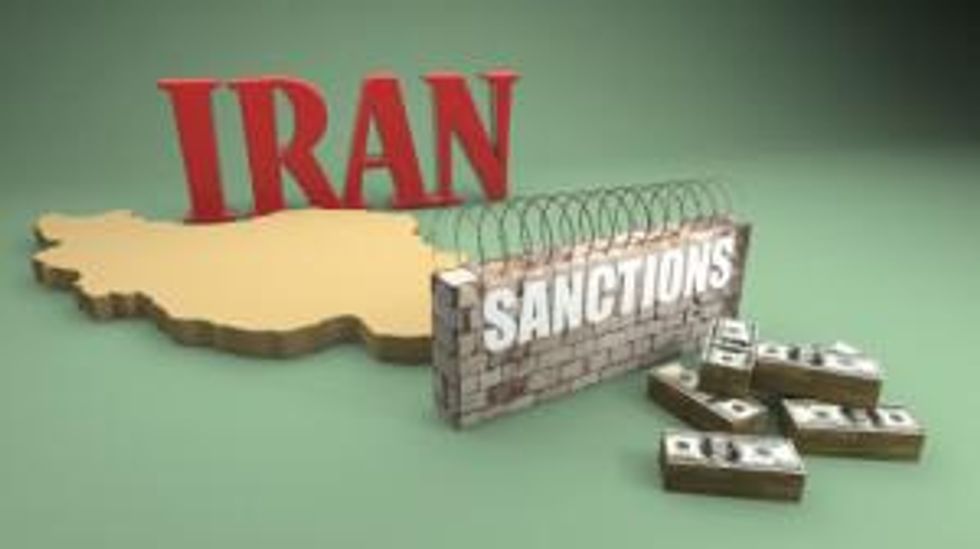Need proof that individuals seeking safety flock to gold? Look at Iran, where demand for the metal is growing as the impact of sanctions becomes more severe.
As life in Iran becomes more expensive and more difficult, its inhabitants are turning to gold to cope with the vicious bite of sanctions. Iran sold over 2 million barrels of oil per day last year, but only about 1 million barrels a day in October. Its currency, the rial, is rapidly losing value and hyperinflationary conditions are worsening. Even meat consumption has reportedly declined. But as conditions in the nation deteriorate, the amount of yellow metal that Iran is funneling in from its neighbors is on the rise.
“There are two ways to deal with hyperinflation. Primarily, it’s through dollars and also alternatively through gold,” said Ambassador Mark Wallace, CEO of United Against Nuclear Iran, in an interview with Gold Investing News.
One effect of sanctions, however, is that it has become much more difficult for Iran to obtain major foreign currencies. A portion of what is available is needed for legitimate trade in the private sector. But in addition to that, the public wants to store its wealth in safe havens.
Problems with the rial and oil income have led to the buying and hoarding of gold and dollars. These problems have also forced Iran to use third parties and other nations to disguise its economic activities, states a report from the Center for Strategic and International Studies.
The Iranian regime and its elite cronies are suspected of hoarding metal, and one of the third-party strategies they appear to be employing is the use of neighboring countries to funnel enormous quantities of gold into Iran.
“In 2010 and 2011 combined Turkey’s total gold and jewelry exports amounted to $4.3 billion,” said Inan Demir chief economist at Turkish Finansbank, quoted in Voice of America.
“Now, in the first six months of 2012, [with] gold exports to Iran, we are talking about a gold export figure in excess of $6 billion. So, compared to past trends, we are definitely talking about something extraordinary here,” he said.
In July, Turkish gold sales to Iran reached nearly $2 billion. That trade that did not go unnoticed or unreported; Turkish and international media began to hone in on this relationship.
As the spotlight grew brighter, Iran’s demand for gold from Turkey seemed to decline. Simultaneously, an enormous appetite for gold erupted in the United Arab Emirates (UAE).
Some believe that the players, aiming to mask the trade, switched up their game a bit.
Iran includes Dubai in gold network
To see Iran’s lifeline at work, pay a visit to Istanbul’s Ataturk International Airport and find a gate for a flight to Dubai, states a Reuters article.
“Couriers carrying millions dollars worth of gold bullion in their luggage have been flying from Istanbul to Dubai, where the gold is shipped on to Iran, according to industry sources with knowledge of the business,” the article notes.
Customs data from Turkish airports is said to support these claims.
Further, Turkish trade data shows that in August the nation’s main partner country for exports was suddenly the UAE, despite having been Iran in the previous months. And of the $2.3 billion worth of gold that Turkey exported in August, $1.9 billion worth was sent to the UAE.
Again, in September, the UAE was Turkey’s most valuable export partner. And again, the bulk of its appetite was for gold. Of the total $1.39 billion in exports, $1.14 billion was yellow metal.
During this time, Iran has fallen from the top spot, but it still remains one of Turkey’s most valuable export partners.
According to Wallace, the gold trade between Turkey and Iran is well documented. “Now it appears that Iran is obtaining gold via the UAE,” he said. “Much of that gold is being sent to Iran by small boats.”
Wallace also said that there is a black-market trade along Iran’s borders with Afghanistan and Iraq where truckloads of rials are being exchanged for hard currency and sometimes gold. Much of that currency is also making its way into the gold trade as it is used to purchase more gold from Turkey, he said.
Many wonder where the gold that is going to Iran ultimately ends up. Some believe that Iranian citizens concerned about the deteriorating conditions are storing increasing amounts of their money in metal form.
Voice of America quoted Jamshid Assadi of France’s Burgundy Business School, an Iran analyst, as saying “they [the government] sell it to the Iranian citizens more expensive, and they make money.”
Wallace also expressed little doubt that this surging gold demand is sponsored by the government. He considers gold transactions for such significant quantities virtually impossible without the regime’s involvement, but he begged to differ about the amount that is making its way to the public.
“Given the state of the currency, the average Iranian would love to have access to more gold. But because of the corruption and cronyism in Iran, I think most of the gold remains in the hands of the regime and its cronies,” he said.
“Gold is allowing the Islamic Revolutionary Guard Corps and the regime to buy time. When your currency is essentially tissue paper you have to find a way to stabilize it. If they can’t find a way to handle this hyperinflation, the currency will continue to crumble. You will start to see more panic and capital flight from that country,” said Wallace.
It is conditions such as these that western nations are hoping will bring the Iranian government to its knees. Meanwhile, as Iran and its citizens struggle to cope with the conditions at hand, efforts to obtain large quantities of gold are expected to continue.






